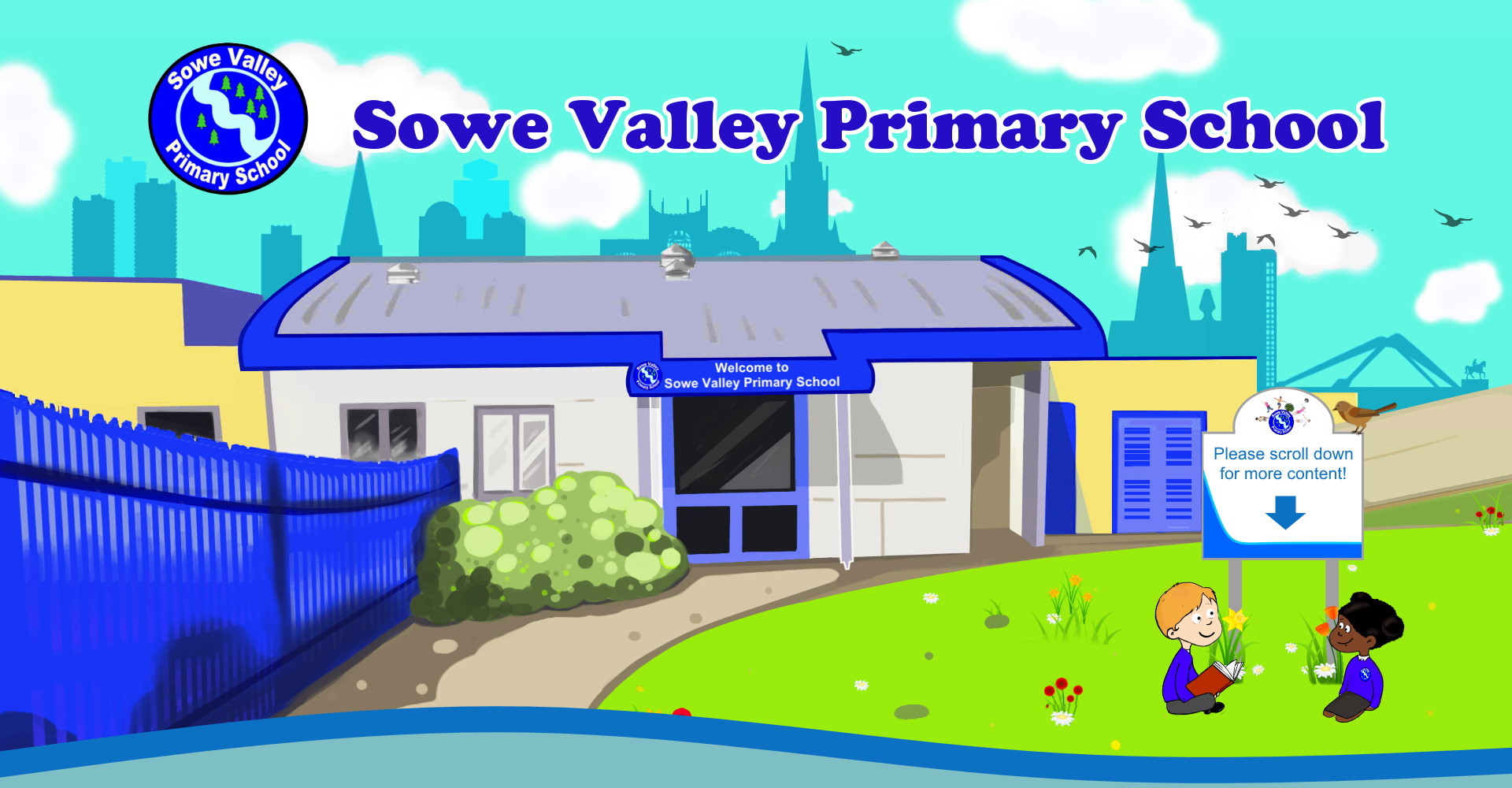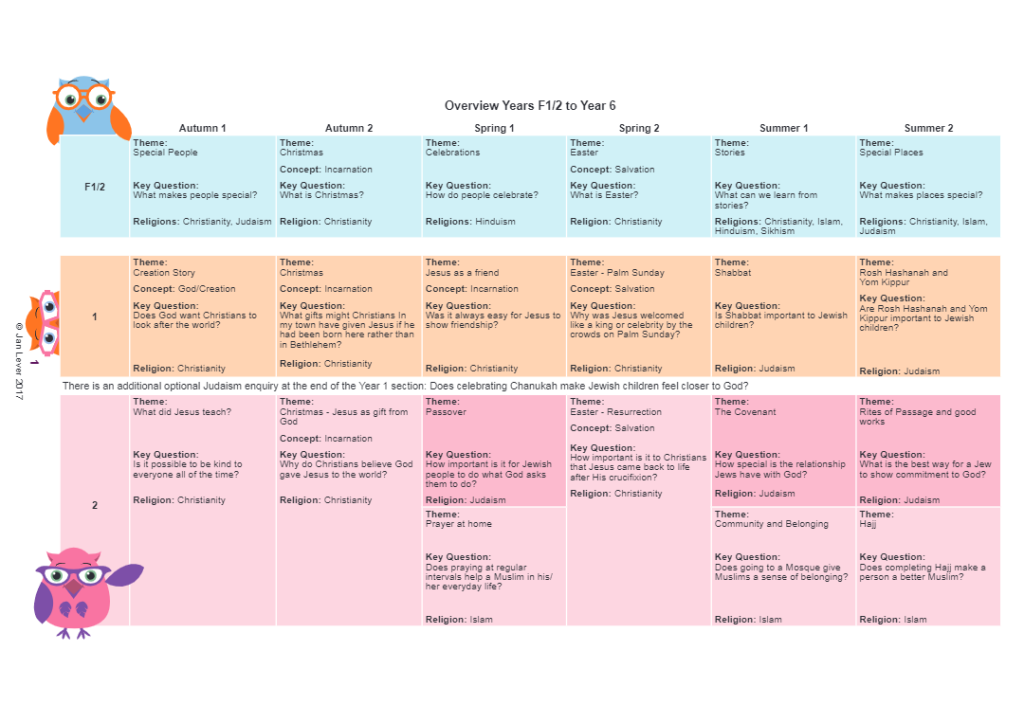

Religious Education
RE – Religious Education

Religious Education at Sowe Valley Primary School follows an enquiry-based approach using the scheme ‘Discovery RE.’ It provides a way of widening our children’s knowledge of the world through the wonderment of religion and beliefs.
Throughout their time at Sowe Valley, children will study aspects of the major world faiths; Christianity, Islam, Hinduism, Judaism, Buddhism and Sikhism. These are explored alongside the children’s own beliefs, values and experiences. There is an emphasis on learning about religion but also learning from religion.
Themes such as celebrations, special people, traditions, important places and our human values ensure the children are engaged with a topic that is relevant and exciting as well as building up their own personal values.
We want our children to show respect, tolerance and understanding for the beliefs of others. This is promoted by allowing children to respond positively and with an enhanced vocabulary, to challenges they may face. Critical thinking skills allow them to relate the experience of others to themselves, develop curiosity, ask questions and develop an empathy and understanding of others that will take them through
their future education and lives beyond the classroom. Lessons follow a 4-step enquiry approach.
The Enquiry Approach to Religious Education
Details of the Four Step Enquiry method used in Discovery RE®

Step 1 – Engagement
The human experience underpinning the key question is explored here within the children’s own experience, whether that includes religion or not e.g. a human experience underpinning the question, ‘What is the best way for a Sikh to show commitment to God?’ is ‘commitment’, so lesson 1 aims to help all children resonate with the experience of ‘commitment’ in their own lives. If they can relate to this human experience they will be better able to understand the world of religion into which the enquiry takes them. Their personal resonance with this underpinning human experience acts as the BRIDGE into the world of religion (which may be very much outside of their experience).

Step 2 – Investigation
The teacher guides the children through the enquiry, children gaining subject knowledge carefully selected to assist their thinking about the key question.
Some of the enquiries have a lot of relevant content so teachers do need to be selective and not try to cover too much. Depth is more important.
The acquisition of the factual information about the religion /belief system being studied is important, but not as an end in itself.

Step 3 – Evaluation
This lesson draws together the children’s learning and their conclusions about the key question of that enquiry. This is an assessment task (the activity sheet and resources are included) which the teacher can assess by using the age-related expectation descriptors at the end of each enquiry. These are exemplified, and tracking and record sheets are included, as are pupil self-assessment sheets.
The expectations may well lend themselves to meaningful and less onerous report writing, the activity sheets providing evidence in children’s books for their learning in each enquiry.
We are not suggesting that paper-based evidence is the sole form of assessment in RE. The expectation is that the assessment activity sheets provided will be seen in conjunction with teacher observations of the children’s work and responses throughout the enquiry.
We believe that RE insights are not bound by literacy skills.

Step 4 – Expression
Children are taken back to Step 1, their own experience, to reflect on how this enquiry might have influenced their own starting points and beliefs. There is often further evidence for their books produced in this lesson.
RE Documents
RE Overview

